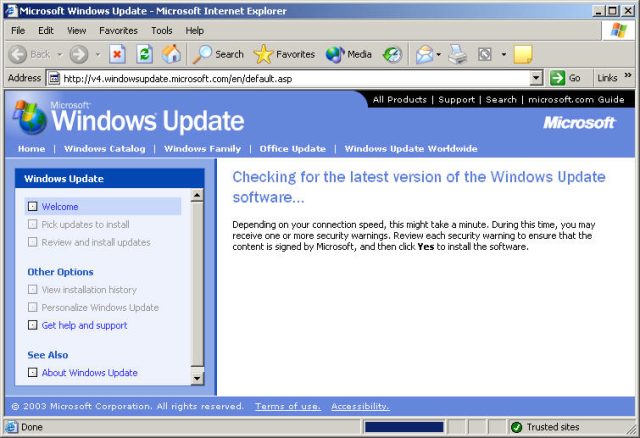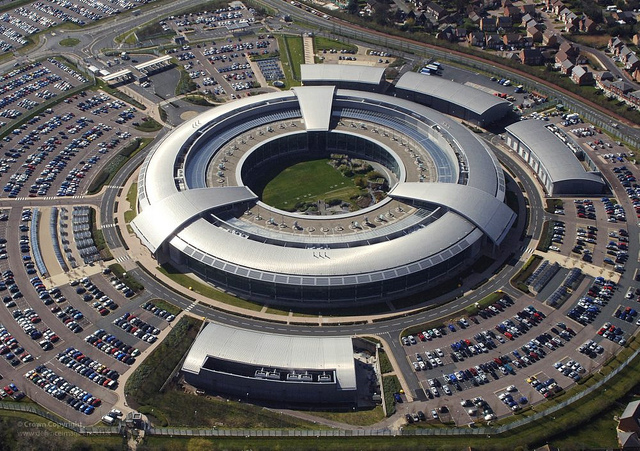The tech turning learning on its head
Cloud
Feds Want Apple’s Help to Defeat Encrypted Phones, New Legal Case Shows
OAKLAND, CA—Newly discovered court documents from two federal criminal cases in New York and California that remain otherwise sealed suggest that the Department of Justice (DOJ) is pursuing an unusual legal strategy to compel cellphone makers to assist investigations.
In both cases, the seized phones—one of which is an iPhone 5S—are encrypted and cannot be cracked by federal authorities. Prosecutors have now invoked the All Writs Act, an 18th-century federal law that simply allows courts to issue a writ, or order, which compels a person or company to do something.
Some legal experts are concerned that these rarely made public examples of the lengths the government is willing to go in defeating encrypted phones raise new questions as to how far the government can compel a private company to aid a criminal investigation.
Read 33 remaining paragraphs | Comments
Google’s Project Loon Woos Telecom Giants
Some telecom analysts view Project Loon, Google’s effort to beam Internet signals from high-altitude balloons, as a threat to incumbent carriers. But Google wants to partner rather than compete, and some large wireless players have stepped forward.
Crypto attack that hijacked Windows Update goes mainstream in Amazon Cloud

Underscoring just how broken the widely used MD5 hashing algorithm is, a software engineer racked up just 65 cents in computing fees to replicate the type of attack a powerful nation-state used in 2012 to hijack Microsoft’s Windows Update mechanism.
Nathaniel McHugh ran open source software known as HashClash to modify two separate images—one of them depicting funk legend James Brown and the other R&B singer/songwriter Barry White—that generate precisely the same MD5 hash, e06723d4961a0a3f950e7786f3766338. The exercise—known in cryptographic circles as a hash collision—took just 10 hours and cost only 65 cents plus tax to complete using a GPU instance on Amazon Web Service. In 2007, cryptography expert and HashClash creator Marc Stevens estimated it would require about one day to complete an MD5 collision using a cluster of PlayStation 3 consoles.


The practical ability to create two separate inputs that generate the same hash is a fundamental flaw that makes MD5 unsuitable for most purposes. (The exception is password hashing. Single iteration MD5 hashing is horrible for passwords but for an entirely different reason that is outside the scope of this post.) The susceptibility to collisions can have disastrous consequences, potentially for huge swaths of the Internet.
Read 4 remaining paragraphs | Comments
STD Dating Site Faces $16.5m Penalty
The operator of a dating for people with sexually transmitted diseases is successfully sued for sharing users’ details with other sites despite a privacy promise.
Facebook Government Requests Up 24%
Requests by governments for Facebook’s user data are up by nearly a quarter in the first half of the year compared to the previous six months.
Domino’s Becomes A Tech Company That Happens To Make Pizza
Advancements in online and mobile orders have become key ingredients for the company’s recent success. Domino’s innovations include an online pizza tracker and a voice-ordering app.
UK Spy Chief, Parroting His US Counterparts, Calls for Crypto Backdoors

Writing that “privacy has never been an absolute right,” Robert Hannigan, the head of British spy agency GCHG, urged the US tech sector to assist the fight against terrorism and other crimes by opening up their proprietary networks to government authorities.

Hannigan, in a Financial Times editorial on Monday, suggested that “technology companies are in denial” over the Internet’s use “to facilitate murder or child abuse.” He wrote that the time was ripe for “addressing some uncomfortable truths” and went on to say the public wouldn’t mind if technology companies gave governments backdoor access either.
They do not want the media platforms they use with their friends and families to facilitate murder or child abuse. They know the Internet grew out of the values of western democracy, not vice versa. I think those customers would be comfortable with a better, more sustainable relationship between the agencies and the technology companies.
“Better do it now than in the aftermath of greater violence,” Hannigan added.
Hannigan’s opinion piece follows similar comments by FBI Director James Comey and US Attorney General Eric Holder. And a day after Hannigan’s comments, the Electronic Frontier Foundation of San Francisco released a “Secure Messaging Scorecard” that rated which messaging technologies are “truly safe and secure.”
Read 7 remaining paragraphs | Comments
The App That Helps The Chinese Masses Mobilize Online
China’s popular messaging app, WeChat, has some 300 million users and has become a way for Chinese to rally around a cause, something that’s difficult in a country with strict government controls.
Online Drug Dealers Are Now Accepting Darkcoin, Bitcoin’s Stealthier Cousin

Darkcoin, bitcoin’s more anonymous cousin, is increasingly being used for online drug deals. Ironically, this could actually help take it mainstream.
The post Online Drug Dealers Are Now Accepting Darkcoin, Bitcoin’s Stealthier Cousin appeared first on WIRED.
![]()
